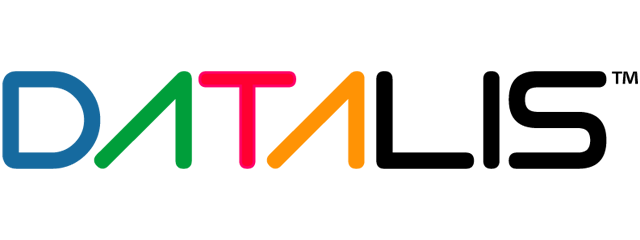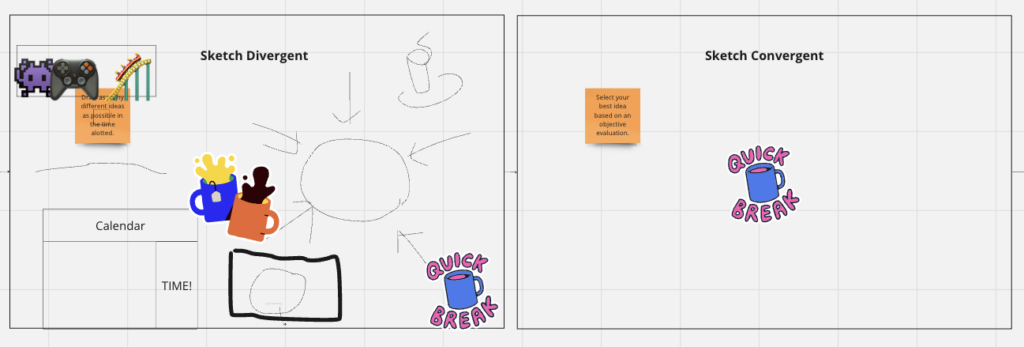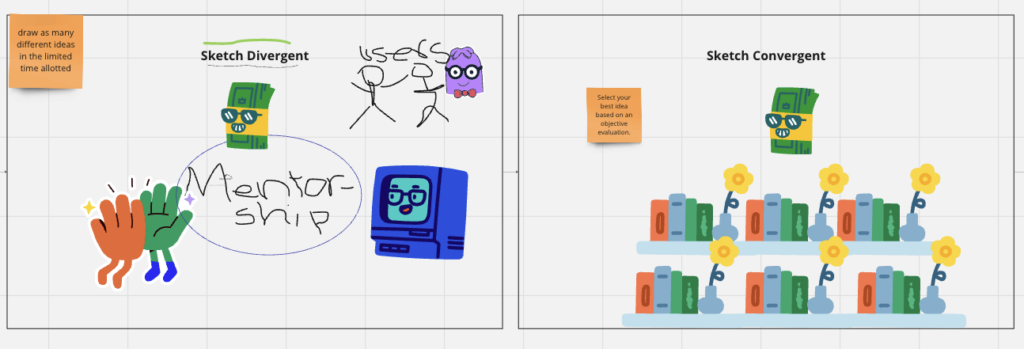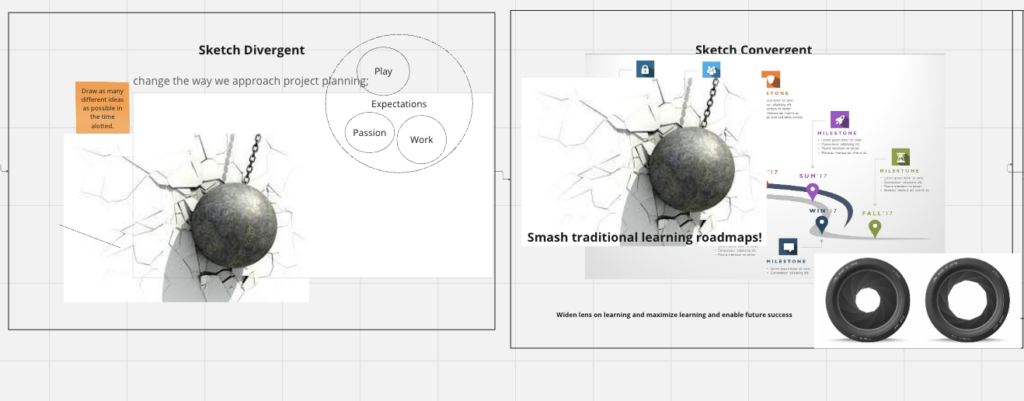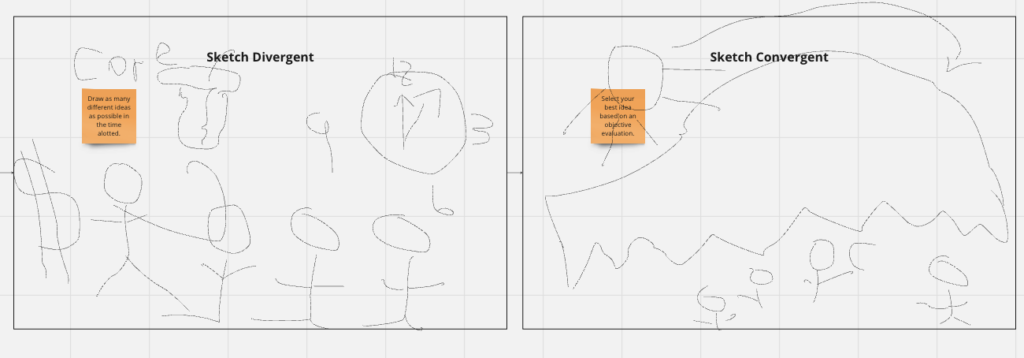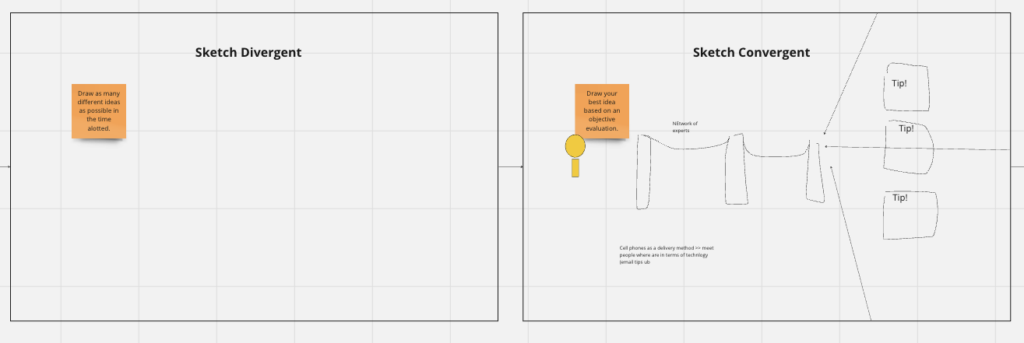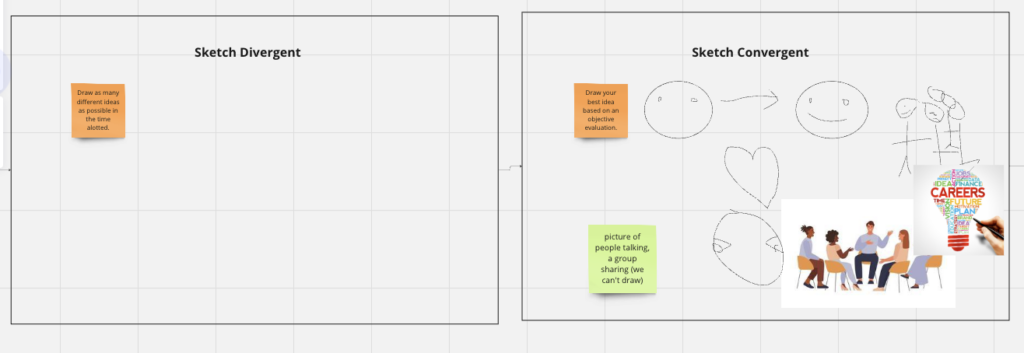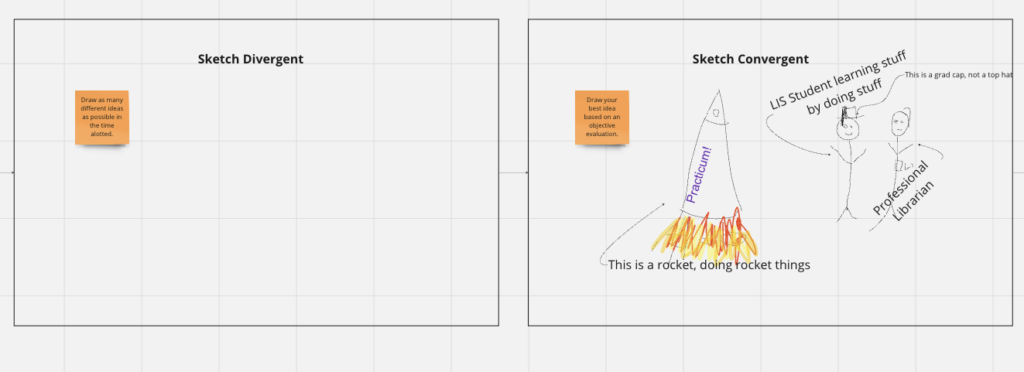DATALIS is an IMLS funded LEADING project that sought to innovate the future of professional education in Library and Information Science (LIS). DATALIS grew out of a successful five year program that sought to develop data science skills in early career professionals. DATALIS sought to extend the success of this professional development program by exploring more broadly problems and potential solutions.
To begin this work we explored the problem:
How might we help libraries collaborate to innovate professional education that impacts recruitment, growth, and retention?
Through a series of events, we deployed a multi-stage design thinking methodology called an “Innovation Funnel,” which is aimed at identifying and addressing key challenges in the LIS field. Through LEARN, WORK, DEVELOP and PRESENT, we were able to engage hundreds of multi-career stage LIS Professional across the country.
Summary
Reflecting on the diverse range of innovative proposals presented by the various teams, several common themes emerge that highlight a collective vision towards enhancing the library and information science (LIS) profession. These themes include fostering inclusivity and diversity, embracing technology for connectivity and learning, prioritizing mentorship and professional development, and engaging with the community beyond traditional boundaries. Integrating these projects can amplify their impact, creating a more cohesive and powerful approach to addressing the challenges faced by the LIS field.
Common Themes:
1. Inclusivity and Diversity: Many teams emphasized the importance of including diverse voices and perspectives within the LIS profession, whether through mentorship, recruitment, or community engagement. This focus on diversity is essential for creating libraries that truly reflect and serve their communities.
2. Technology and Connectivity: The use of digital platforms to facilitate mentorship, professional development, and community engagement was a recurring solution. Technology breaks down geographical and institutional barriers, offering broader access to resources and networks.
3. Mentorship and Professional Development: Recognizing the value of mentorship in career advancement, several teams proposed mechanisms to connect LIS professionals with mentors. This focus on growth and learning underscores the need for continuous professional development opportunities across the career lifecycle.
4. Community Engagement: Engaging with the community beyond the physical library space was highlighted as a means to enhance service delivery, understand diverse needs, and foster a sense of belonging among community members.
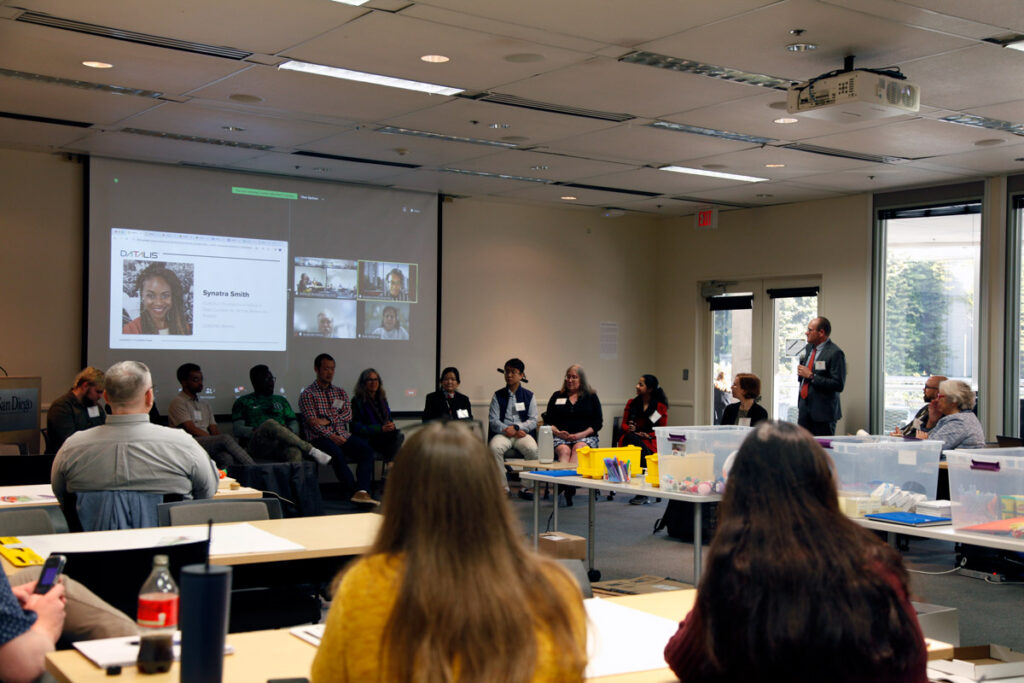
Opportunities to Integrate Prototypes for Greater Impact:
1. Creating a Unified Digital Platform: Combining the ideas of digital mentorship applications, online resource sharing, and community engagement tools could lead to the development of a comprehensive digital platform. This platform could offer a one-stop solution for LIS professionals seeking mentorship, professional development opportunities, and tools for community engagement, regardless of their geographical location or career stage.
2. Developing a Global Mentorship Network: Integrating the various mentorship proposals into a global network supported by the digital platform could enhance access to diverse mentors and mentees. This network could support mentorship across different areas of expertise, career stages, and cultural backgrounds, promoting a more inclusive LIS profession.
3. Leveraging Community Engagement for Professional Development: Community engagement initiatives could be tied into professional development and mentorship programs. For example, projects that involve working with diverse communities could be recognized as part of the professional development process, encouraging LIS professionals to engage with their communities actively.
4. Resource Pooling for Under Resourced Libraries: Proposals focusing on resource allocation could be expanded to include pooling and sharing digital resources, training materials, and best practices across libraries. This approach could particularly benefit under-resourced libraries, enabling them to offer more diverse materials and programs with the support of a larger network.
By integrating these projects, the LIS profession could leverage collective strengths to address common challenges, enhancing the impact of individual initiatives. This integrated approach promotes a more connected, diverse, and professionally developed LIS community, capable of adapting to the changing needs of the societies they serve.”
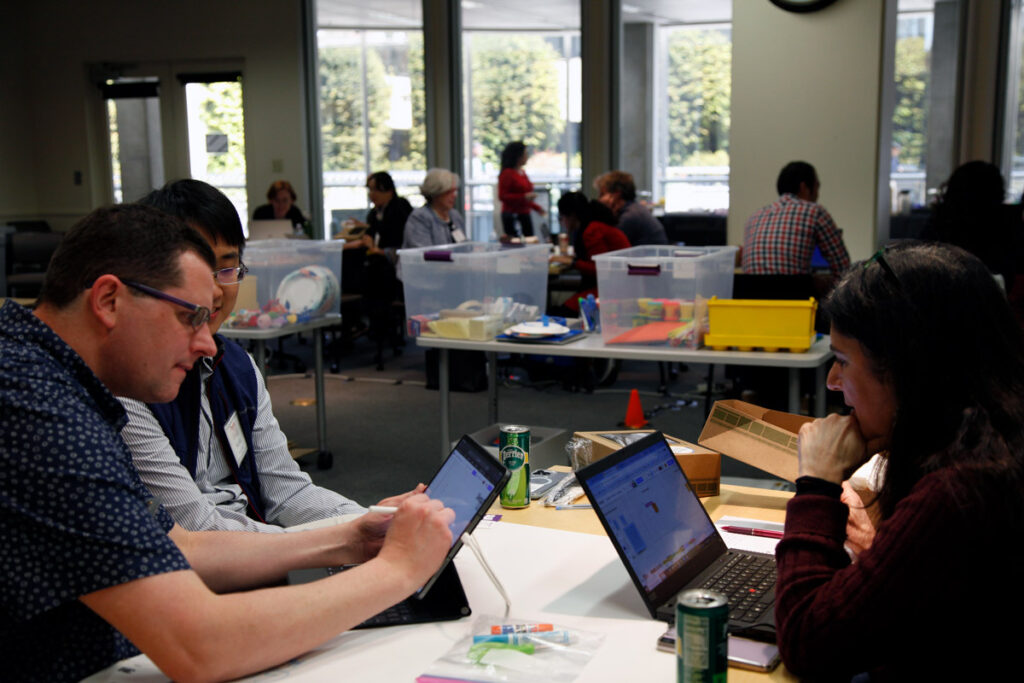
Updated Problem Statement
Considering the shared objectives and themes across these innovative projects, a single overarching problem they collectively address is the enhancement of access to and the quality of professional development, mentorship, community engagement, and inclusivity within the Library and Information Science (LIS) profession. These projects highlight a concerted effort to create a more connected, diverse, and dynamic LIS community, capable of meeting the evolving needs of both the professionals within it and the communities they serve.
To encapsulate the essence of these initiatives into a singular “how might we” problem statement, it would be:
How might we collaboratively develop and implement an inclusive framework that leverages technology and community engagement to support continuous professional development, mentorship, and diversity in the LIS profession.
This problem statement aims to capture the collective ambition of these projects to foster a more inclusive, connected, and professionally enriched LIS landscape. It recognizes the need for a holistic approach that integrates technology, community, and professional growth, ensuring that every LIS professional, regardless of their geographic location, career stage, or current resources, has the opportunity to thrive and contribute meaningfully to their community.
